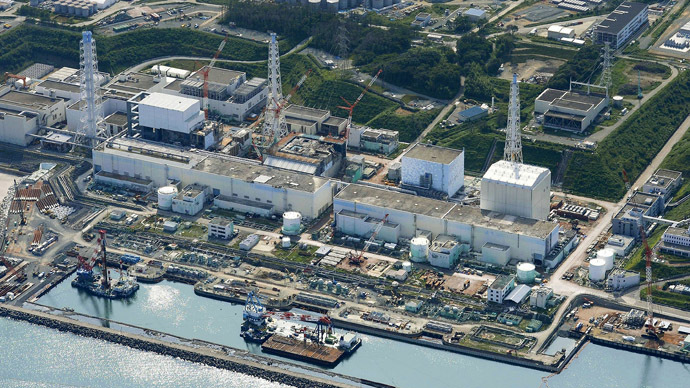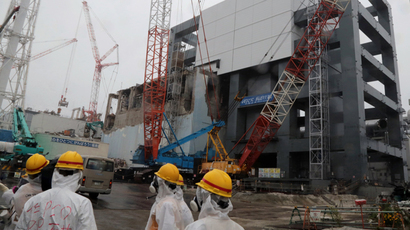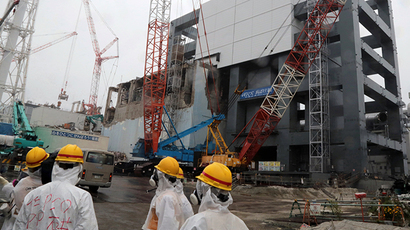Big quake near Fukushima would ‘decimate Japan, lead to US West Coast evacuation’

The stricken nuclear plant at Fukushima in northern Japan is in such a delicate condition that a future earthquake could trigger a disaster that would decimate Japan and affect the entire West Coast of North America, a prominent scientist has warned.
Speaking at a symposium on water ecology at the University of
Alberta in Canada, prominent Japanese-Canadian scientist David
Suzuki said that the Japanese government had been “lying
through its teeth” about the true extent of the 2011
Fukushima nuclear disaster.
He attributed the cover-up to the Japanese government’s collusion
with the Tokyo Electric Power Company (TEPCO) that administers
the plant.
“Fukushima is the most terrifying situation that I can
imagine,” Suzuki said, adding that another earthquake could
trigger a potentially catastrophic, nuclear disaster.
“The fourth [reactor] has been so badly damaged that the fear
is if there’s another earthquake of a 7 or above then that
building will go and all hell breaks loose,” he said, adding
that the chances of an earthquake measuring 7 or above in Japan
over the next three years were over 95 percent.
“If the fourth [reactor] goes under an earthquake and those rods
are exposed, then it’s bye, bye, Japan and everybody on the west
coast of North America should be evacuated. And if that isn’t
terrifying, I don’t know what is,” Suzuki said.
‘Too proud’
Addressing the Japanese government’s attempts to bring the crisis
under control, Suzuki said the scientists charged with the
plant’s safety “don’t know what to do.”
“The thing we need is to let a group of international experts go
in with complete freedom to do what they suggest,” Suzuki
said, adding that the only thing impeding this was the “pride” of
the Japanese government that was refusing to admit this was
necessary.
Suzuki referred to the current scheme of freezing the soil around
the reactor to prevent radioactive leaks as “cockamany.”
TEPCO has accepted the US government’s help in undertaking the risky cleanup operation of the Fukushima site. Teams of experts will begin the removal of fuel rods from the fourth reactor in mid-November in a decommissioning process that is likely to take decades. One wrong move in the delicate operation could result in horrific quantities of radiation being released into the atmosphere or trigger a massive explosion.
Dr Helen Caldicott described the risks of removing the rods to RT as “terribly serious” because of the danger of releasing a large amount of radiation.
“Two rods could touch each other in this process which has been done before and there could be a fission reaction and a very large release of radiation.”
Suzuki, a prominent environmental campaigner and scientist from the University of British Columbia, whose television science programs and books have gained a wide international audience, has been very vocal in his criticisms of Japan in its handling of the disaster.
Despite his prominence in Canada, Suzuki has been criticized in
the past by the media for double standards and his credentials as
a scientist have been queried. While his television programs
encourage society to consume less fossil fuel and adopt a more
sustainable lifestyle, Suzuki reportedly lives in one of
Vancouver’s most exclusive areas and has faced criticism over his
globetrotting airplane travel.
However, with regard to the current situation at Fukushima, a
number of scientists have echoed Suzuki’s concerns. Nuclear
technology historian Robert Jacobs told RT that there could
easily be more destruction at the plant’s fourth reactor.
“If this building were to collapse, which could happen, it
would spill these spent nuclear fuel rods all over the ground
which would make the 2020 Tokyo Olympics impossible and could
threaten all kinds of health problems throughout northern Japan
and Tokyo itself,” Jacobs said.














